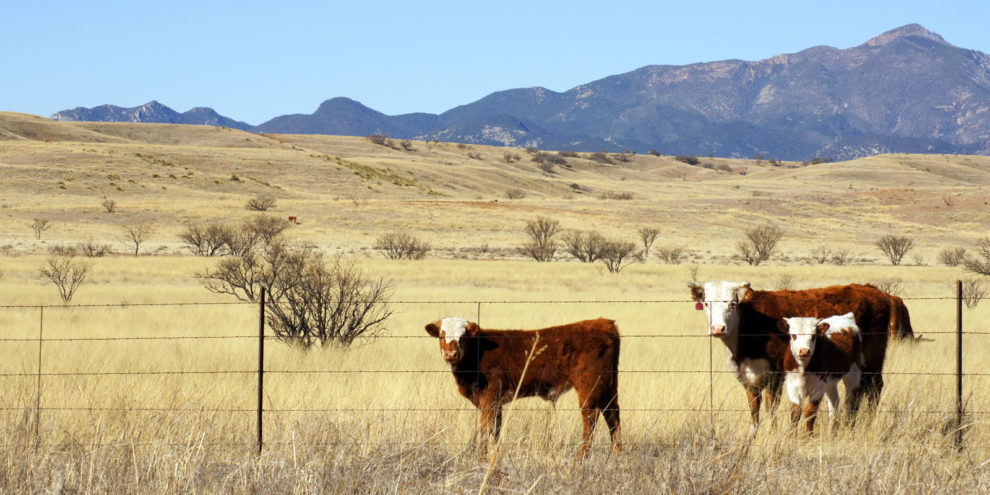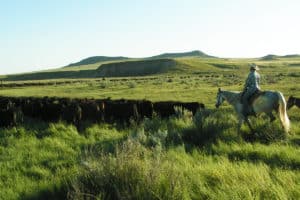Ranch life is far from simple and that fact holds true at tax time as well. Operating a ranch often involves multiple revenue streams and expenses, deductions and credits, all of which can complicate things when it’s time to file your taxes.
If you’re filing your taxes as a rancher for the first time, or even a seasoned rancher wanting to brush up on how ranches are taxed, these tax tips will provide you guidance as you prepare to file 2019 taxes.
Tax deadline extension
One important recent development to note is the extension of the traditional April 15 deadline to file. In a historical move by the IRS, you will be allowed until July 15 to file and pay your 2019 taxes. The goal is to provide some much-needed breathing room for all tax payers in the unprecedented times we’re currently facing in our country.
Deductions
Ranchers get a lot of deductions for the expenses they incur. That doesn’t mean you can deduct everything, but the IRS offers numerous tax breaks for ranchers. You may qualify for standard tax deductions for business expenses such as livestock feed and employee benefits, or for land conservation costs. You can also take a tax deduction for depreciation of certain capital assets and may qualify for a deduction for operating losses. The number of deductions depends on your specific ranching operation and may include:
- Seeds and plants
- Veterinary costs for livestock
- Depreciation
- Chemicals
- Feed
- Fertilizers and lime
- Insurance (other than health)
- Mortgage interest
- Storage and warehousing
Be aware of the expenses you can’t deduct
While tax deductions and income vary by situation, there are several things most ranchers can’t deduct:
- Personal or living expenses that don’t produce ranch income (ie. the cost of home repairs)
- Expenses of raising anything you or your family use personally
- The value of raised animals that died
- Inventory losses
- Personal losses
Take advantage of other tax breaks
In addition to deducting your expenses, there may be other credits that you’re due as a rancher.
Home office deduction
You may be able to deduct certain expenses using the home office deduction if you used your home to conduct ranch business. In order to qualify, you must have used part of your home exclusively and regularly as the principal place of business for your ranch operation, and you cannot have another fixed location from which you managed and administered your business.
Deducting net operating loss
Owning a ranch can be an unpredictable business. When deductible losses from operating your ranch exceed your other income from the year, you can see a net operating loss. When that happens, you may be able to carry the loss back up to two years and deduct it from income you had in those years. If you carry the loss back, you may be able to get a refund for all or some of the income tax you paid for that past year. Alternatively, you can choose to carry the net operating loss forward for up to 20 years.
Claiming fuel credits
If you used gasoline or other fuels for your ranch, you might be able to claim a credit or refund on the excise taxes you paid.
Earned income tax credit
Although it’s not specifically designed for ranchers, the earned income tax credit may be available to you if you meet the qualifications. The credit is designed for working people with low to moderate income, so you may not be eligible if your net ranch profit exceeds a certain amount.
Know what you must claim as income
As a rancher, it’s likely you have multiple streams of income, and there may be some income sources that you were unaware you needed to report. Here’s a quick list:
- Sales of livestock and other resale items
- Sales of livestock, produce, grains and other products you raised
- Distributions from a cooperative
- Agricultural program payments
- Commodity Credit Corporation loan
- Crop insurance proceeds
- Federal crop disaster payments
- Income you received for custom hire or machine work
- Gasoline or fuel tax credit or refunds
Owning and operating a ranch is hard work and with many moving parts to your business, it’s critical that you stay organized throughout the year so that you’re not scrambling come tax time.
Depending on the complexity of your finances, it may be wise to work with a tax professional who specializes in ranch tax laws. They can help you maximize your eligible tax deductions and credits to reduce your tax liability as much as possible.
In the end, the most important thing is that you properly report all income and expenses for your business, and get the most tax breaks that you’re eligible for.
This content may not be used or reproduced in any manner whatsoever, in part or in whole, without written permission of LANDTHINK. Use of this content without permission is a violation of federal copyright law. The articles, posts, comments, opinions and information provided by LANDTHINK are for informational and research purposes only and DOES NOT substitute or coincide with the advice of an attorney, accountant, real estate broker or any other licensed real estate professional. LANDTHINK strongly advises visitors and readers to seek their own professional guidance and advice related to buying, investing in or selling real estate.










Great article with alot of good tips about livestock and land.